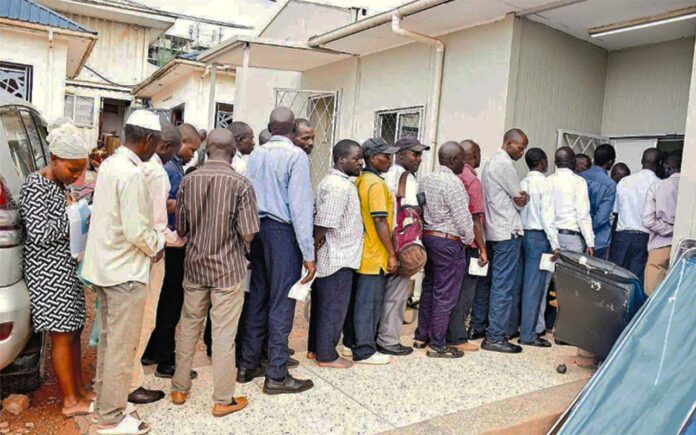The Uganda Cancer Institute (UCI) has registered a big turn-up in a two-day free mass cancer screening camp at the Mulago-based Centre, which aims to address the rates of cervical and prostate cancer.
The exercise that kicked off from November 11-12, 2024, was organized by the institute in collaboration with the Korean Foundation for International Healthcare, targeting to screen around 500 to 1,000 people in the two-day cancer screening camp.
The camp addressed cervical and prostate cancer, with cervical cancer being the leading cancerous affecting women in Uganda, which aims to use diagnostic procedures like ultrasound and mammography to identify potential cancers early in order to improve survival rates among patients.
Read Also: Leading Cause of Cancer Death in Uganda is Cervical Cancer—Dr. Jatho
Christine Namulindwa, the UCI spokesperson, said that by midday on day one, at least 250 people had made it to the institute to be screened for different types of cancer.
“We received quite a large number of people who have come to receive this free cancer screening, including children. In our (routine) free screening clinics, we have 20-40 people per day, but today we have received 250 people, and the teams have been on the ground to ensure everyone receives what they have come for,” she said.
Read Also: Pink October: A Month of Awareness and Action on Breast Cancer
She further explained that they have built the capacity of health facilities in other regions to do cancer screening and trained health workers to attend to people who get to that place, and then after the screening, patients can be referred to the Uganda Cancer Institute.
Dr. Nixon Niyonzima, the head of research and training at UCI, said that the screening is part of UCI’s strategy to improve cancer prevention and treatment services in Uganda.
“This free screening camp will have ultrasound, mammography, and other lab investigations,” he said.
Read Also: Esophageal Cancer: An Increasing Public Health Burden
According to the institute, about 70% of patients go to hospitals late for cancer diagnosis and treatment because of limited access to screening and low cancer awareness. This delayed diagnosis and treatment leads to a low survival rate of 30% or fewer for adult patients and roughly 50% for children.
The institute receives approximately 7,000 new cancer cases per year, which is insufficient when compared to the estimated 34,000 people who develop cancer in Uganda each day.
Read Also: Uganda Cancer Institute Rejects Appeal by MPs to Stop Charging Patients at Private Wing
In October 2024, the Uganda Cancer Institute was moving around the country doing screening, and it also empowered regional referral hospitals and health centres IVs and IIIs to ensure they screen people.















